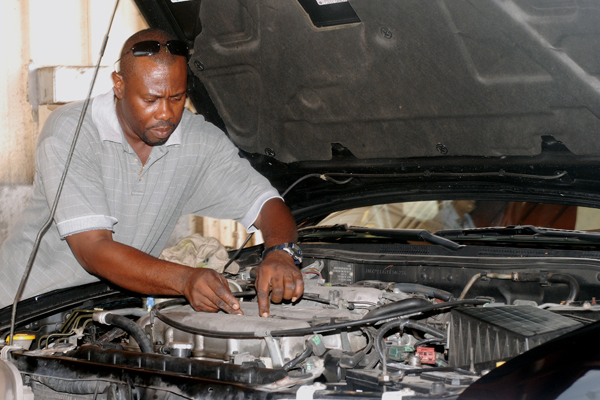When it comes to potentially hazardous areas, garages are one of the most overlooked and
ignored spots by car owners.
So why are garage safety hazards not given the attention they’re due? It may be because many
car owners consider the garage more of a “separate” area that doesn’t require the same level
of organization and cleanliness.
But it’s important to remember that the garage is a vital part of your car home. It’s a space
that’s heavily used and an area that’s conducive to safety hazards if proper care isn’t taken. As
such, the garage is as deserving of your attention as any other area.
1. Oil Spills Are Extremely Dangerous
Without the right amount of oil, the internal parts in an automotive engine will get
damaged. The average automotive repair shop spends a lot of time changing the oil in
the cars they work on. As you or your technicians perform this essential maintenance,
you need to be mindful of just how common oil spills in automotive repair shops are.
Not only can oil on the floor of your shop cause slip and fall accidents, it also poses a risk
to the environment.
2. Other general electrical issues
Along with faulty wiring, a number of additional electrical issues can be garage safety hazards:
- Electrical circuits that are old and faulty
- Overloaded electrical outlets
- Improper usage of extension cords (avoid using extension cords on a permanent basis,
make sure you’re using the right extension cord for the task, and throw out any frayed or
worn out extension cords)
3. Garage clutter
Garage clutter doesn’t just prevent you from parking in your garage and maximizing the space’s
usefulness, it’s also a safety hazard. Stacks of clutter and junk piled high in the garage may not
be stable and will also, as mentioned, fuel any fire.
Clutter management in the garage is much easier if you choose an effective garage
organization solutions.
4. Improper storage of combustible liquids
Gas, oil, lighter fluid, lawn care products, and paints are just a few of the many hazardous
solvents typically stored in the garage. Improper storage of these liquids can cause fire risks,
either from ignition caused by surface contact with a leaking combustible liquid or with
flammable vapours.
Store your combustible liquids in containers that are clearly marked or colour coded, tightly
closed, and durable (plastic soda bottles don’t count for the latter). Never mix combustible
liquids. Make sure you store them away from any heat sources, including heaters, appliances,
and direct sunlight. If possible, store your combustible liquids in a shed that has good
ventilation. Properly dispose of combustible liquids you no longer need.
5. General carelessness
Last on our list of the most common garage safety hazards is general carelessness. This can
come from a number of methods:
- Carelessness when using the garage
- Failing to properly extinguish cigarettes.



